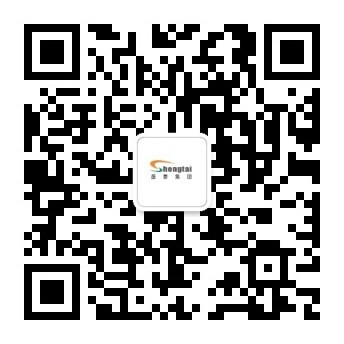Enterprise Certification
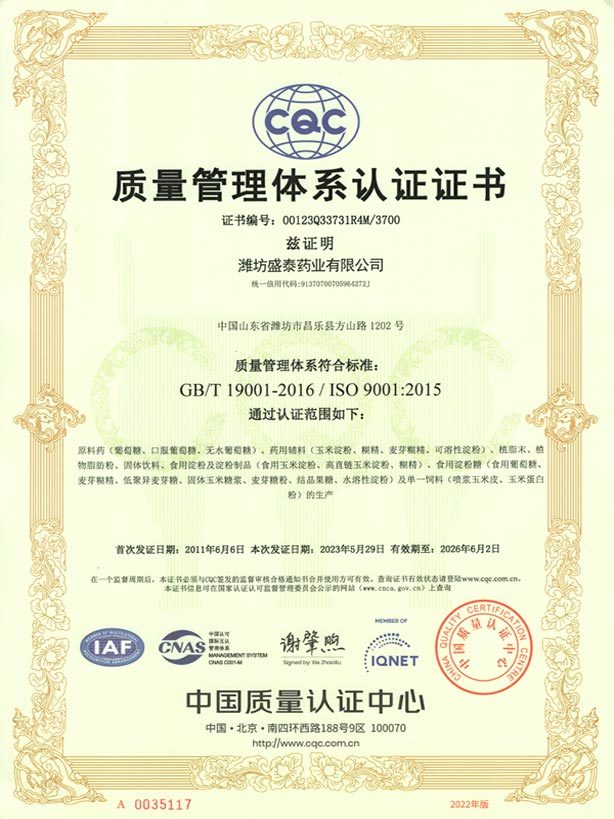
ISO9001
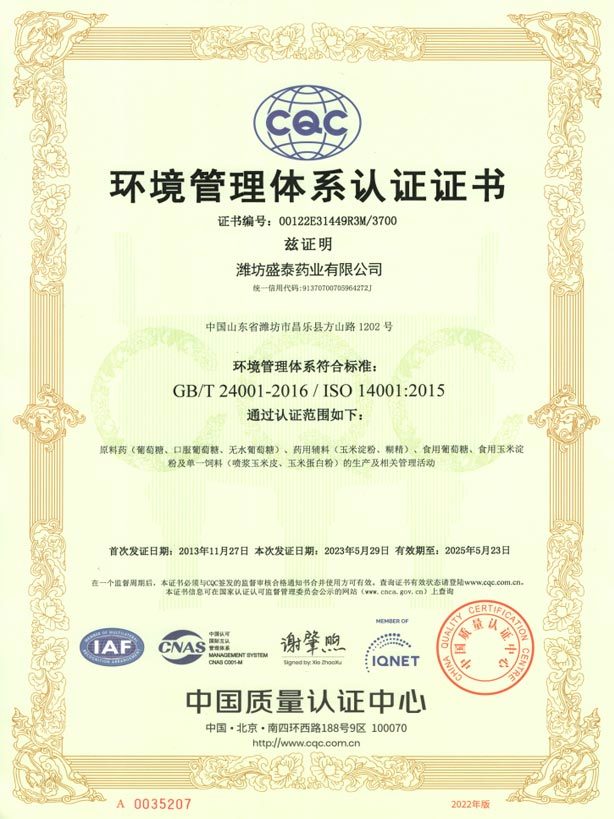
ISO14001
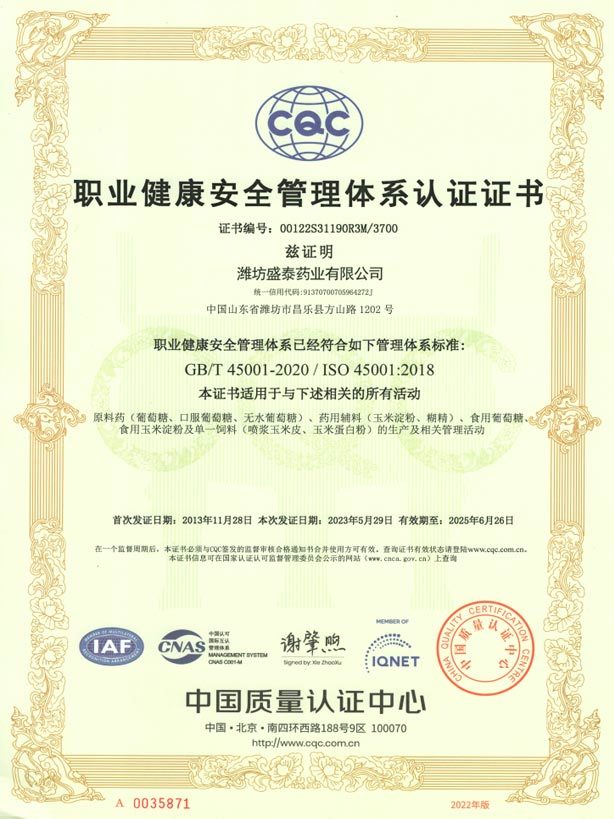
ISO45001
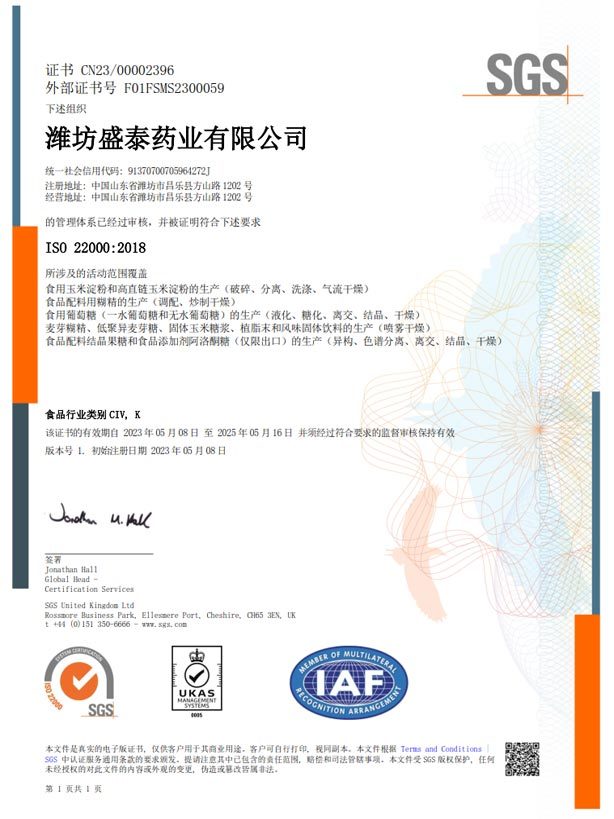
ISO22000
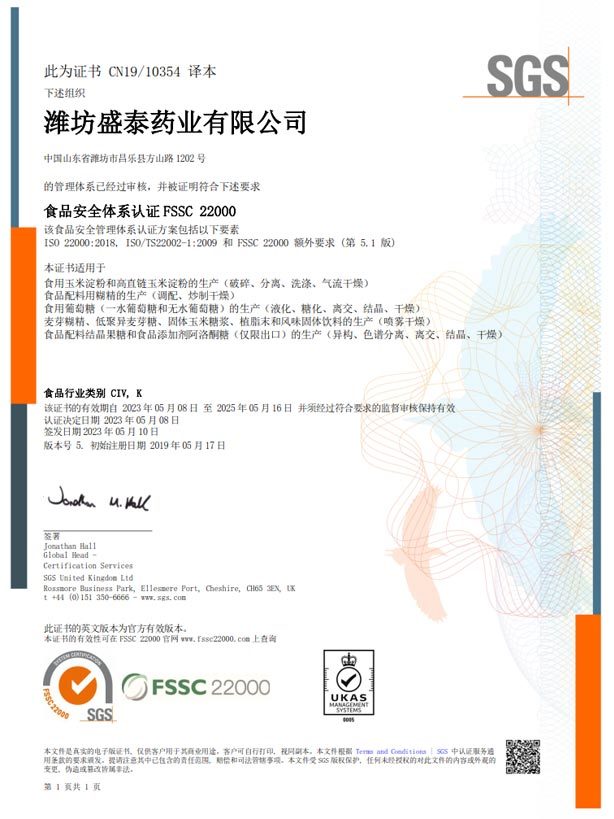
FSSC22000
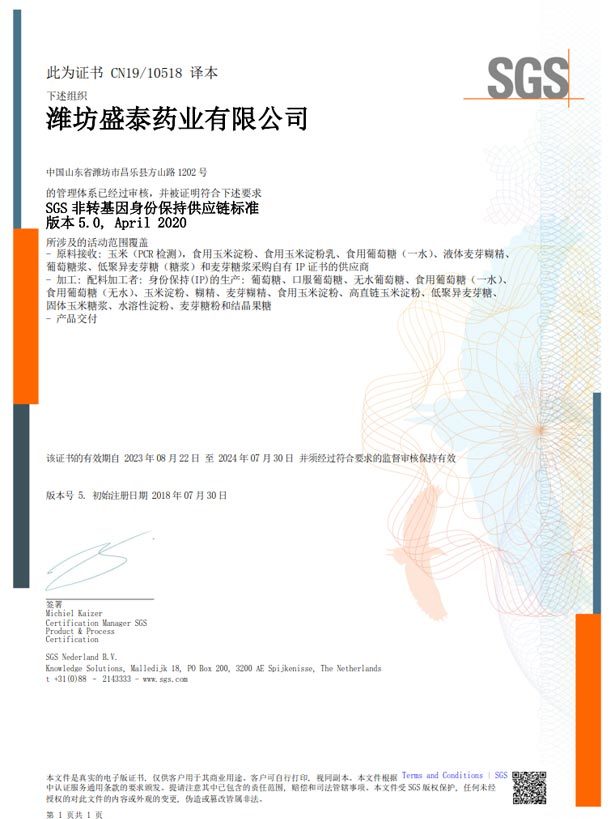
IP Non-GMO Compliance Verification
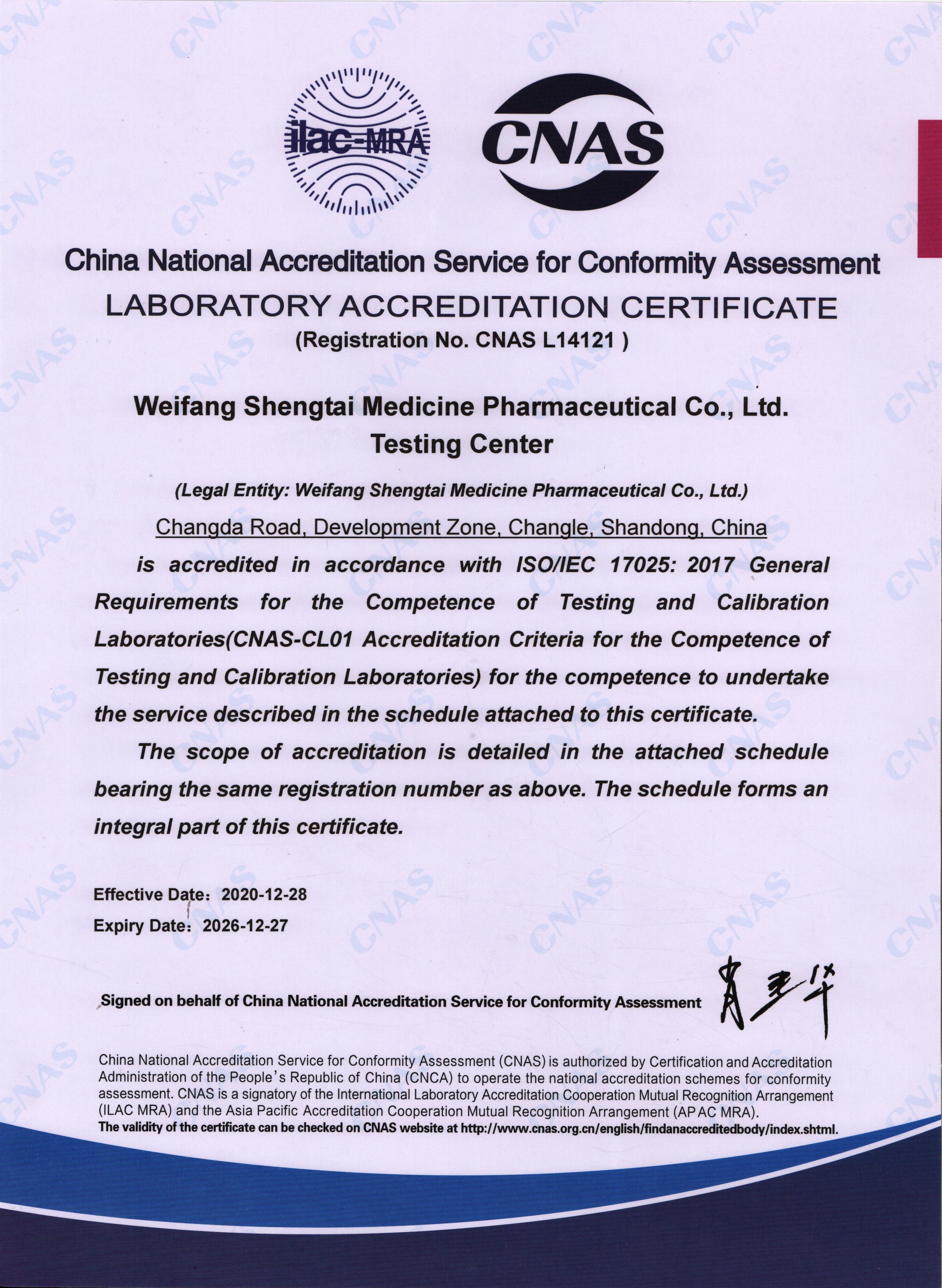
CNAS

1、ISO9001 quality management system certification

It is by far the most mature quality framework in the world, setting standards not only for quality management systems but also for overall management systems. It helps businesses succeed through increased customer satisfaction, employee motivation and continuous improvement. Passing this system certification indicates that the company has reached international standards in the integration of various management systems and can continuously and stably provide customers with expected and satisfactory qualified products.

2、ISO14001 environmental management system certification

This system was established to prevent adverse effects on the environment, address global environmental pollution and environmental problems, and comply with the needs of international environmental protection and international economic and trade development. After an enterprise passes this certification, it can prove that it has reached international standards in environmental management, ensures that the control of pollutants in various activities of the enterprise meets relevant requirements, and comprehensively optimizes all aspects of management to achieve minimum environmental impact control, minimum Control of material and energy consumption, lowest cost control, and lowest environmental risk control.

3、ISO45001 occupational health and safety management system

It is an occupational health and safety management system standard applicable to any organization. It is an international safety and health management system verification standard and the basis for organizations to establish occupational health and safety management systems. Through the operation of the system, it provides enterprises with a set of risk management methods to reduce and prevent losses of life, property, and time due to accidents.

4、ISO22000 food safety management system certification

This standard was established in response to customer expectations and social responsibilities. It expresses common requirements in food safety management, rather than specific requirements for any type of organization in the food chain. This standard applies to all organizations in the food chain that wish to establish a system to ensure food safety, regardless of their size, type and the products they provide. Through this system certification, it can provide a framework for enterprises to build a food safety management system, effectively control food safety risks in various activities of the enterprise, and at the same time prove their ability to control food safety hazards and factors that affect food safety.

5、FSSC22000 food safety system certification

Created for food manufacturers, this standard is a global, auditable food safety management system standard that integrates ISO22000 food safety standards, Publicly Available Specifications for Food Safety (PAS) 220 and other requirements. Enterprises that have passed this system certification indicate that they have established a comprehensive management system and fully meet the food safety requirements of customers and industry regulations.

6、GMP (Good Manufacturing Practice) compliance verification

GMP (Good Manufacturing Practice) is a set of mandatory standards applicable to pharmaceutical, food and other industries. It requires enterprises to meet hygienic quality requirements in accordance with relevant national regulations in terms of raw materials, personnel, facilities and equipment, production processes, packaging and transportation, quality control, etc. Develop a set of operational work specifications. Through this certification, it can help enterprises improve their hygienic environment and promptly discover problems in the production process and improve them.

7、IP Non-GMO Compliance Verification

This certification focuses on the impact of genetically modified ingredients in the production and processing chain on the non-genetically modified safety of products. It establishes a full quality control system from the production base, production process, handling, processing, storage, transportation, and sales to ensure the non-genetically modified identity of the product and ensure production The products are non-GMO products and a guarantee system has been established. Through certification, it shows that the company can prevent products from being contaminated by genetically modified ingredients in the entire production supply chain from planting to harvesting, transportation (export), processing and entering the market, and ensure the purity of non-genetically modified products.

8、SMETA audit

SMETA is a responsible supply chain audit methodology/project launched by Sedex and widely used in the industry. Any enterprise or institution can use this methodology/project to evaluate and measure the social or environmental compliance performance of its own workplace, suppliers, and other supply chain partners. SMETA is based on international standards and local laws and regulations as its assessment criteria, and is currently used by more than 35 industries in more than 180 countries and regions. The company's SMETA audit covers the following four points: labor rights, health and safety, environmental management, and business ethics.





